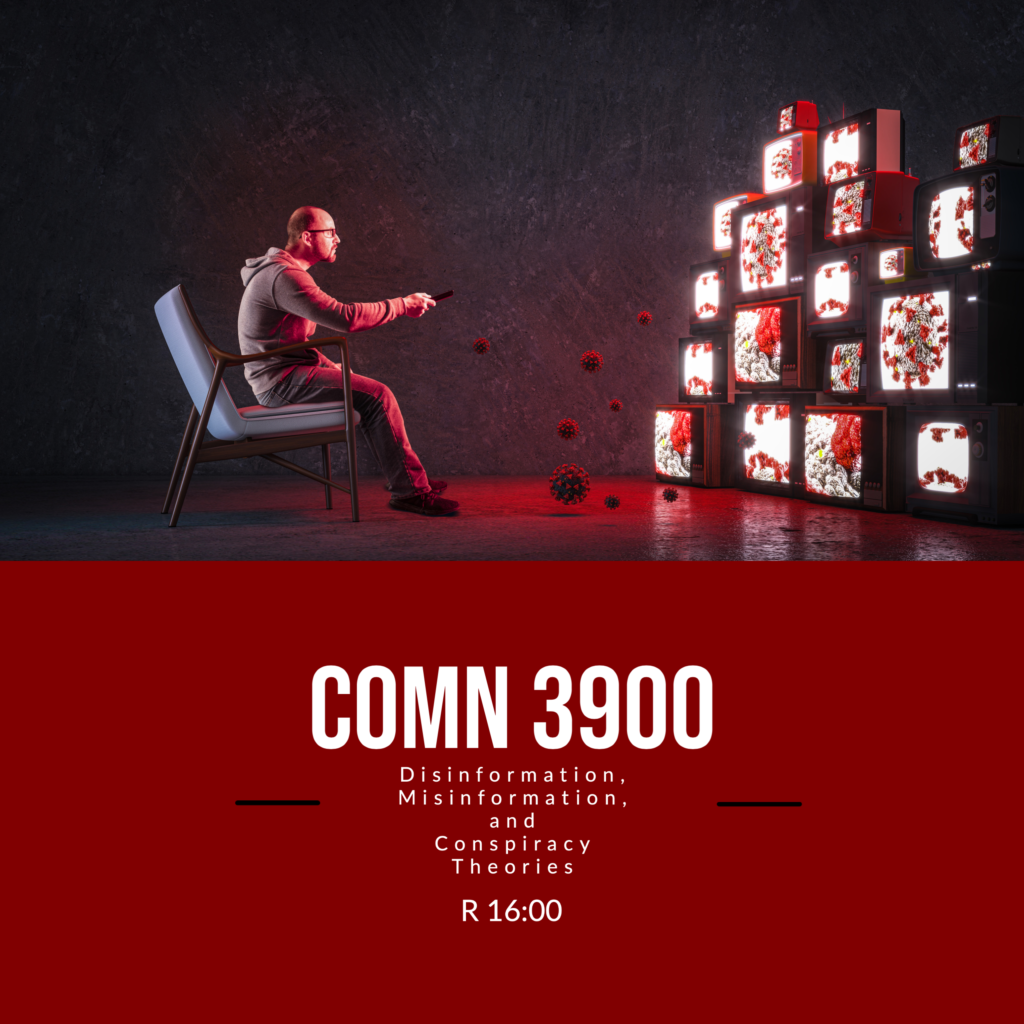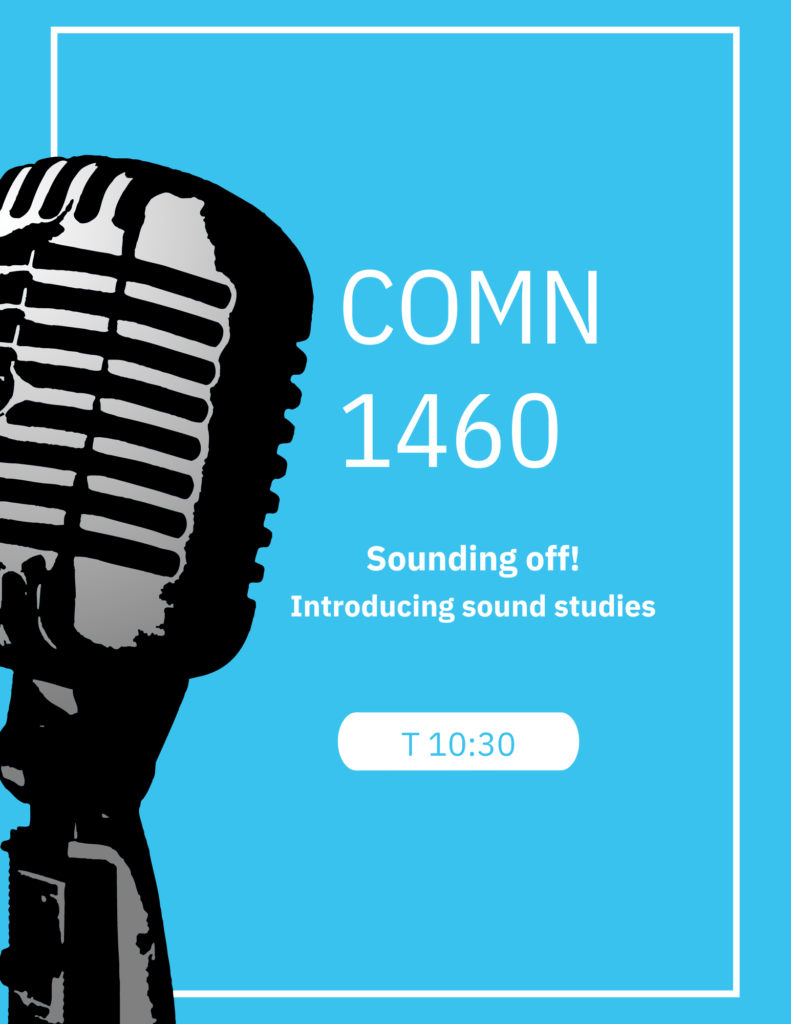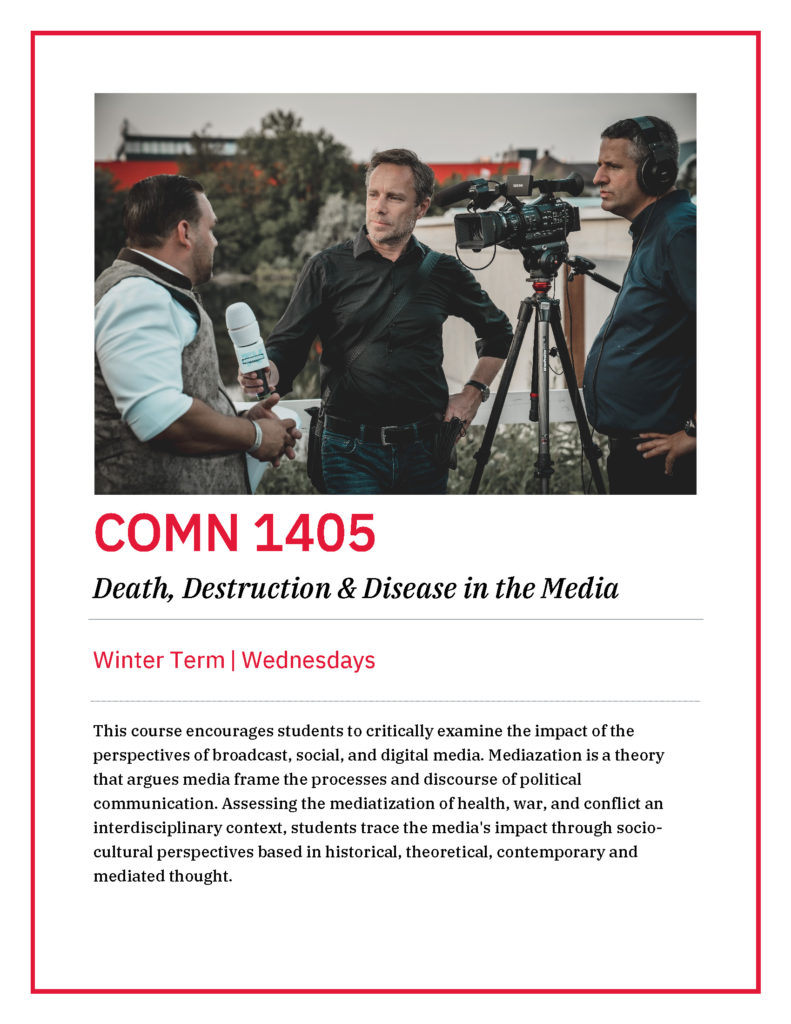
COMN 3900: Disinformation, Misinformation, and Conspiracy Theories
This course is a mix of deception and facts. It might be run by your professor or by a bot based somewhere else in the world. It’s designed so that you agree with it, like it, and share it across social media -- just don't fact-check it. It’s friendly but it seems a bit off. If you take this course, you’ll learn who is really controlling the media… or maybe you'll be even less certain!
In all seriousness, you and I both know that we’re awash in manipulative and misleading communication: disinformation, propaganda, conspiracy theories. Digital media has been an especially potent vehicle for this form of communication. This section of COMN 3900 takes a whirlwind survey of these manipulative forms of communication, and, if we work together, proposes solutions to stem the tide of confusion.
Professor Robert W. Gehl
COMN 1460 Sounding off! Introducing sound studies taught by Professor Shirley Roburn asks the question: how does sound shape our experiences of the world? This course surveys social, political, cultural, and ecological dimensions of sound and its reproduction. It addresses key debates in sound studies ranging from how corporate concentration in the music industry affects content creators across lines of race, gender, language, and ability, to the environmental impact of streaming music, to how sound shapes experiences of community and nature.


Professor Anne MacLennan is offering a new course at the first- year level, COMN 1405 called Death, Destruction & Disease in the Media offered in the winter semester on Wednesdays. The course will examine the ways we understand war, conflict, destruction (such as climate change or terrorism), and disease as it is filtered through the media.
